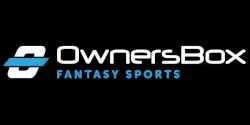Texas Daily Fantasy Sports
Texas law does not address daily fantasy sports, but all the nation’s most prominent DFS operators are open for business and accept players 18 or older.
Although state law is unclear on the legal status of DFS contests, some Texas daily fantasy sports sites have operated openly for over a decade without issue. In that sense, it’s fair to call fantasy sports legal in Texas, even if lawmakers haven’t yet passed a law to formally legalize and regulate the activity.
Texas Daily Fantasy Sports Sites
 Play $5, Get $75Underdog Sports Promo Code: BETUSA
Must be 18+ (19+ in AL, NE; 19+ in CO for some games; 21+ in AZ, MA, and VA) and present in a state where Underdog Fantasy operates. Terms apply. Concerned with your play? Call 1-800-MY-RESET or 1-800-GAMBLER or visit www.ncpgambling.org. NY: Call the 24/7 HOPEline at 1-877-8-HOPENY or Text HOPENY (467369).
Play $5, Get $75Underdog Sports Promo Code: BETUSA
Must be 18+ (19+ in AL, NE; 19+ in CO for some games; 21+ in AZ, MA, and VA) and present in a state where Underdog Fantasy operates. Terms apply. Concerned with your play? Call 1-800-MY-RESET or 1-800-GAMBLER or visit www.ncpgambling.org. NY: Call the 24/7 HOPEline at 1-877-8-HOPENY or Text HOPENY (467369).
 Free Entry + $100 Deposit BonusParlayPlay Promo Code: BUSA
18/21+, T&Cs Apply. Welcome offer is for players who make their first successful deposit to ParlayPlay. Following the deposit, you receive promo entry(s) that matches the deposit amount up to $100. The promo entry can only be used to enter up to 4-pick More/Less contests. If you lose the promo entry, your account balance is not impacted. The deposit promo entry(s) must be used within 7 days of deposit. After 7 days the free entry will expire. If you have concerns about managing your play on ParlayPlay or anywhere else, or if you’re concerned about a family member or friend, the National Council on Problem Gambling offers support through telephone or text. They can be reached confidentially (24-hours a day) at 1-800-522-4700. Or contacted on their website at https://www.ncpgambling.org/ or through chat at ncpgambling.org/chat.
Free Entry + $100 Deposit BonusParlayPlay Promo Code: BUSA
18/21+, T&Cs Apply. Welcome offer is for players who make their first successful deposit to ParlayPlay. Following the deposit, you receive promo entry(s) that matches the deposit amount up to $100. The promo entry can only be used to enter up to 4-pick More/Less contests. If you lose the promo entry, your account balance is not impacted. The deposit promo entry(s) must be used within 7 days of deposit. After 7 days the free entry will expire. If you have concerns about managing your play on ParlayPlay or anywhere else, or if you’re concerned about a family member or friend, the National Council on Problem Gambling offers support through telephone or text. They can be reached confidentially (24-hours a day) at 1-800-522-4700. Or contacted on their website at https://www.ncpgambling.org/ or through chat at ncpgambling.org/chat.
 $10 Free Signup Offer & $200 Deposit BonusBetr Picks Promo Code: USGAMLING
Must be 21+ and located in a jurisdiction where Betr Picks operates. Product offering may vary by jurisdiction. T&Cs apply. For more details, please visit betr.app. Concerned about your play? Call the NCPG at 1-800-522-4700.
$10 Free Signup Offer & $200 Deposit BonusBetr Picks Promo Code: USGAMLING
Must be 21+ and located in a jurisdiction where Betr Picks operates. Product offering may vary by jurisdiction. T&Cs apply. For more details, please visit betr.app. Concerned about your play? Call the NCPG at 1-800-522-4700.
 100% Deposit BonusOwnersBox Referral Code: BUSA
18/21+ to play. Terms & conditions apply. See ownersbox.com for full offer details. If you or somebody you know has a gambling problem, help is available. Call (1-800-GAMBLER).
100% Deposit BonusOwnersBox Referral Code: BUSA
18/21+ to play. Terms & conditions apply. See ownersbox.com for full offer details. If you or somebody you know has a gambling problem, help is available. Call (1-800-GAMBLER).
 $100 First Entry RefundBoom Fantasy Promo Code: BUSA
Users must be 18+ years of age to play and deposit (19+ in Nebraska). T&Cs Apply. Gambling Problem? Call 1-800-GAMBLER. All users must have only 1 account. If a user is found to be less than 18 years old, their account will be banned and all their entries will be canceled and refunded. If a user is found to have more than 1 account, they will be subject to a ban at Boom’s discretion.
$100 First Entry RefundBoom Fantasy Promo Code: BUSA
Users must be 18+ years of age to play and deposit (19+ in Nebraska). T&Cs Apply. Gambling Problem? Call 1-800-GAMBLER. All users must have only 1 account. If a user is found to be less than 18 years old, their account will be banned and all their entries will be canceled and refunded. If a user is found to have more than 1 account, they will be subject to a ban at Boom’s discretion.
In some ways, the lack of DFS legislation in Texas is a plus for sports fans. Some laws other states have passed to regulate fantasy sports implement burdensome taxes and regulations, resulting in fewer choices for players. In contrast, Texas is a wide-open market with an eclectic mix of fantasy apps and websites at hand.
Most Texas fantasy sports sites offer sizable DFS welcome bonuses to new customers, and some have launched contests that closely resemble online sports betting. Texas fantasy sports sites still comply with all state and federal laws, but they constantly innovate within the confines of the law to develop unique types of DFS games.
Legal Texas DFS Apps
- PrizePicks
- Underdog Fantasy
- OwnersBox
- ParlayPlay
- Boom Fantasy
- Betr Picks
- Dabble Fantasy
- FanDuel DFS
- DraftKings DFS
- Sleeper DFS
BettingUSA’s recommended Texas daily fantasy sports sites cover a range of DFS offerings that include:
- Daily fantasy games with large GPPs
- Season-long games with snake drafts and trades
- Weekly fantasy leagues that combine elements of DFS and season-long
- Pick ‘em prediction contests/parlay props
- Live trading exchange (buy and sell shares in players during the contest)
- Best-ball contests
However, one thing about daily fantasy sports Texas fans should keep in mind is that untested and inexperienced operators also have market access. Although unlicensed Texas DFS operators are subject to general fraud and consumer protection laws, they don’t have to pass an intense vetting process to acquire licenses like they would in other states.
As a result, players should stick with reputable daily fantasy sports sites. BettingUSA recommends the operators listed above because each has proven capable of running safe, legitimate DFS contests. Additionally, BettingUSA’s recommended operators have completed the licensing process in other states that regulate DFS.
Fantasy Pick’em Apps in Texas
Fantasy pick’em apps like PrizePicks and Underdog Fantasy are legal and operational in Texas. These apps offer the next-closest alternative to online sports betting in Texas because they offer over/under-style contests in which fans predict whether 2+ athletes will meet their projected stat totals.
State law does not expressly authorize fantasy pick’em contests, but neither does it prohibit them. Thus, pick’em fantasy contests are legal by default.
Unlike some other states, Texas has not approved legislation prohibiting fantasy pick’em contests or taken legal action against them. As a result, all major fantasy pick’em apps are available in Texas.
Texas Daily Fantasy Sports Law
The legal status of daily fantasy sports in Texas is unclear due to a lack of laws addressing the issue head-on. In the pre-2016 years, fantasy sites operated in the open but went mostly unnoticed by local authorities. As a result, operators like FanDuel and DraftKings hosted fantasy sports contests for several years without legal concerns.
Business was good for Texas fantasy sports sites in those early days, but the DFS landscape would soon become more complicated. In January 2016, Attorney General Ken Paxton issued a nonbinding opinion stating that daily fantasy sports likely constitute illegal gambling in Texas.
The relevant portion of the opinion reads:
Under this statutory framework, odds are favorable that a court would conclude that participation in paid daily fantasy sports leagues constitutes illegal gambling… It is within the province of the Legislature, and not this office or the courts, to weight the competing policy concerns necessary to alter this framework to legalize paid daily fantasy sports leagues.
Because it was a nonbinding opinion, it didn’t imply that fantasy sports operators faced imminent legal action. Even so, it prompted swift reactions from FanDuel and DraftKings.
DraftKings sued the Attorney General’s office over the opinion, citing lost customers, damaged business relationships, and seeking a ruling on the legality of DFS in Texas. Meanwhile, FanDuel voluntarily exited the Texas DFS market as part of an agreement with the Texas Attorney General’s office.
FanDuel returned to Texas in August 2018, more than two years after exiting the state.
FanDuel did not explain why it reentered Texas, but the decision likely had to do with its chief rival enjoying near-monopoly status in one of the nation’s biggest DFS markets without suffering any repercussions.
After that initial dustup, the Texas fantasy sports market settled into a comfortable status quo that persists today. Neither DraftKings’ lawsuit nor FanDuel’s agreement with the AG’s Office have yielded significant developments in the ensuing years.
Lawmakers have introduced multiple bills to regulate Texas fantasy sports apps and websites since then, but none have become law. As a result, DFS providers continue to operate in a legal grey area but are largely unbothered by the uncertainty.
One attempt in 2017 consisted of three complementary bills (HB 1457, HB 1418, and HB 1422) that collectively defined DFS contests as games of skill, established a licensing process, and prescribed various consumer protection regulations.
All three Texas DFS bills failed to advance beyond a few committee hearings and died without further action in the Calendars Committee.
Lawmakers tried again in 2019 with a bill exempting daily fantasy sports contests from the state’s definition of legal gambling. Just two pages in length, HB 2303 did not include any regulatory provisions but would have provided DFS operators legal certainty in Texas.
HB 2303 made more progress than any past effort when it passed a full House vote 116-26 but died without action in the Senate. Two other bills introduced in 2019 also sought to legalize and regulate Texas daily fantasy sports sites but died before making much progress.
In 2021, Texas lawmakers introduced HB 393, a bill identical to HB 2303. Despite its similarities to the 2019 bill, it made little progress and died in the House. No additional bills have materialized since as lawmakers turned their attention to legalizing sports betting in Texas.



